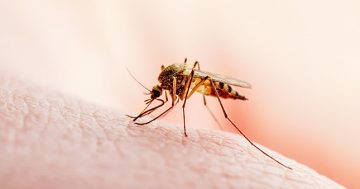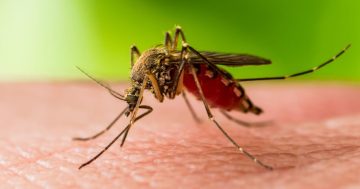
Dr Helen Pedgrift urges residents to take precautions against gastrointestinal illnesses. Photo: TCHHS.
Health authorities are urging Cape York, Torres Strait and Northern Peninsula Area residents to be mindful of the risk of gastrointestinal illnesses.
Dr Helen Pedgrift from Torres and Cape Hospital and Health Service (TCHHS) said cases of gastrointestinal illness were occurring right across the region.
“Gastroenteritis causes inflammation of the stomach and intestines,’’ the public health medical officer said.
“It may be caused by bacteria, such as with campylobacter, salmonella and shigella, or viruses in the cases of rotavirus or norovirus, or parasites as in cases of giardia and cryptosporidium.
“Gastroenteritis usually spreads when hands, food, objects and surfaces become contaminated with faeces or vomit and the infectious organism is transferred to the mouth when eating, drinking or touching the mouth.
“The spread of some viruses can also occur via small airborne particles circulating in the air during or after vomiting.’’
Dr Pedgrift said those with diarrhoea or vomiting should not prepare food for others.
“Anyone experiencing vomiting or diarrhoea also should stay home and away from others where possible for at least 48 hours after symptoms have resolved,’’ she said.
Regular hand-washing and good hygiene practices can help stop the spread of the illness.
Hands should be washed with soap and water for at least 15 seconds and dried thoroughly on a disposable or clean towel before handling food and after going to the toilet or changing nappies.
Diluting 5 ml of bleach in a 10-litre bucket of soapy water and using this to clean the house can also help stop belly run.
Although most recover well from gastrointestinal illness in a few days, medical advice should be sought if:
- symptoms are severe or persist
- you’re unable to drink fluid and keep it down
- there is blood in the diarrhoea
- the ill person is an infant, an older person or has other conditions (as loss of fluids can have more severe impacts in these groups).
Drinking plenty of fluids is important to keep someone with gastroenteritis hydrated. Water and oral rehydration drinks are best to use rather than caffeinated or soft drinks.
Anyone with concerns should talk to their local primary health care centre or get free advice from a qualified health professional by calling 13 HEALTH (13 43 25 84).

Drinking plenty of water and rehydration drinks is important to keep those with gastroenteritis hydrated. Photo: Engin Ekyurt.









